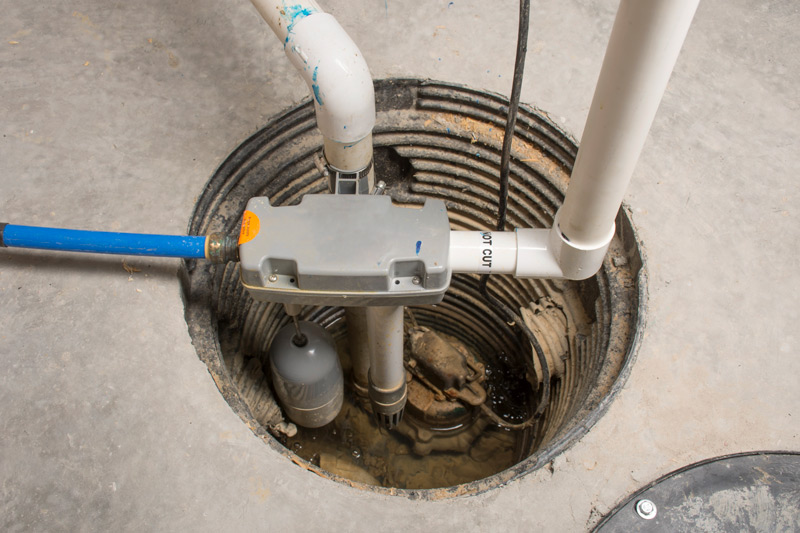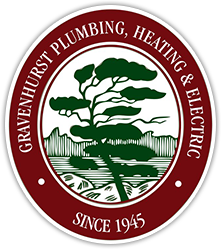Click here to Subscribe to Chips Tips Blog
Homeowner FAQ: Do I Need a Sump Pump This Spring, Really?

Homeowner FAQ: Do I Need a Sump Pump This Spring, Really?
“Why do I need a sump pump? Is it really that necessary?”
According to Ontario’s Building Code, the answer is yes.
What if we told you that water damage is actually the most common cause of home damage in Canada?
It accounts for about 50% of home insurance claims costs!
While we may not consider Canada a very rainy region, water damage is clearly more common than we think.
What’s unfortunate is that most water damage is actually preventable (about 93%). But, shockingly, very few people actually know how to prevent it.
In fact, in a recent study, 43% of their respondents had no clue how to protect their homes from water damage.
If that’s you, keep reading!
The Health Effects of Water Damage
Water damage isn’t just inconvenient and costly. It also presents a health risk to your entire family!
Mould and mildew and both common effects of water damage in your home.
You can typically find mould where there’s been a leak or flooding. But you can also detect it by its distinct smell.
How does mould affect your health?
Some people have a sensitivity to moulds. In these cases, exposure to it could cause harmless symptoms - like itchy eyes and a stuffy nose.
Other people are allergic to mould or have asthma. In these cases, their reactions could become more severe - like a fever or shortness of breath.
In rare cases, there is also “toxic” and “black” mould to worry about. These types of mould can potentially cause even more severe respiratory symptoms.
That’s why controlling the moisture in your home is so important.
Last summer, we released an article about humidity control in your home. This article includes effective ways to control the day-to-day moisture levels of your home.
But how do you prevent severe water damage from a basement flood?
That’s where a quality sump pump comes in!
What Is a Sump Pump And How Does it Work?
Sump pumps are the most effective way to expel water from your foundation.
Homeowners have these devices installed in the lowest part of their homes (i.e. their basement). This ensures the system can catch and redirect rising water before it can flood your home.
Here’s how that works:
- Groundwater accumulates in the sump pit surrounding the pump.
- As rising water reaches a certain level, the pressure sensor activates the pump.
- The sump pump redirects excess water through a discharge pipe - far away from your home’s foundation.
Why You Should Install a Sump Pump In Your Home
Is your home vulnerable to rising groundwater levels?
We’re sorry to say it... but if you live in Canada, the chances are high.
According to the Government of Canada, floods are the most frequent natural hazard in the country.
You may have noticed this in the spring when rivers and streams rise. Or when puddles appear in your driveway.
This is rising groundwater. And it’s exactly what you need to prepare for in the lower parts of your home.
It can happen fast and with little to no warning. That's why preparing your home in advance is so important.
Installing the proper draining and a reliable sump pump should be the highest on your list!
Benefits of Installing a Sump Pump
- Prevents flooding in your basement.
- Helps control basement humidity levels.
- Protects against sewage backup.
- Reduces the risk of mould growth.
- Helps improve indoor air quality.
Are They Mandatory In Ontario?
Sump pumps were not always mandatory before 2017.
At the time, insurance companies highly recommended them to help reduce the risk of water damage. But they were optional.
By 2017, however, the Ontario Building Code made sump pumps mandatory in new homes.
Read more about Ontario’s sump pump requirements.
How To Choose a Sump Pump
Now that you know just how beneficial (and mandatory) a sump pump is, it’s time to choose yours!
Every sump pump does basically the same job - pumping water out of your basement. But there are different types of sump pumps that each have unique features.
4 Types of Sump Pumps:
Pedestal Sump Pumps.
These systems are typically the cheapest sump pump on the market. They fit well in narrow, shallow pits. And they are usually less powerful than submersible units.
The motor on this system should not get wet, so it stays outside the pit, high above the water level.
Submersible Sump Pumps.
These systems are typically more pricey than a pedestal unit but also more powerful. They fit in a much larger sump pit and must have an airtight lit covering their opening.
The motor on this system is totally submersed underwater - hence the name!
Battery Backup Sump Pumps.
In our last blog article, we discussed how to prepare for a Gravenhurst power outage. That included certain system installations like water security alarms and whole-home backup generators.
Well, a battery backup sump pump is another valuable system to include in your outage prep!
This unit operates via a battery - rather than electricity. So it can typically run for about 12 hours before needing a recharge.
Combination Sump Pumps.
A combination sump pump combines a primary pump with a battery backup pump to give you extra power!
Do you have a large basement area that experiences large amounts of flooding? This might be the system for you.
Get Your Sump Pump Ready For Spring
Already have a sump pump installed? It’s time to it ready for spring!
Like most systems in your home, your sump pump needs regular, professional maintenance.
The best time to get this maintenance done is during your spring cleaning!
We wrote a whole article on this last year. So if you’re looking for a quick read on spring sump pump maintenance, give it a read!
Contact Your Gravenhurst Plumbing Team Today!
We offer a full array of plumbing services, including emergency plumbing. Whether you need a sump pump installation or emergency repair, we’ve got you covered!
Give our GPHE team a call at +1 705-687-3402 or message us online!

